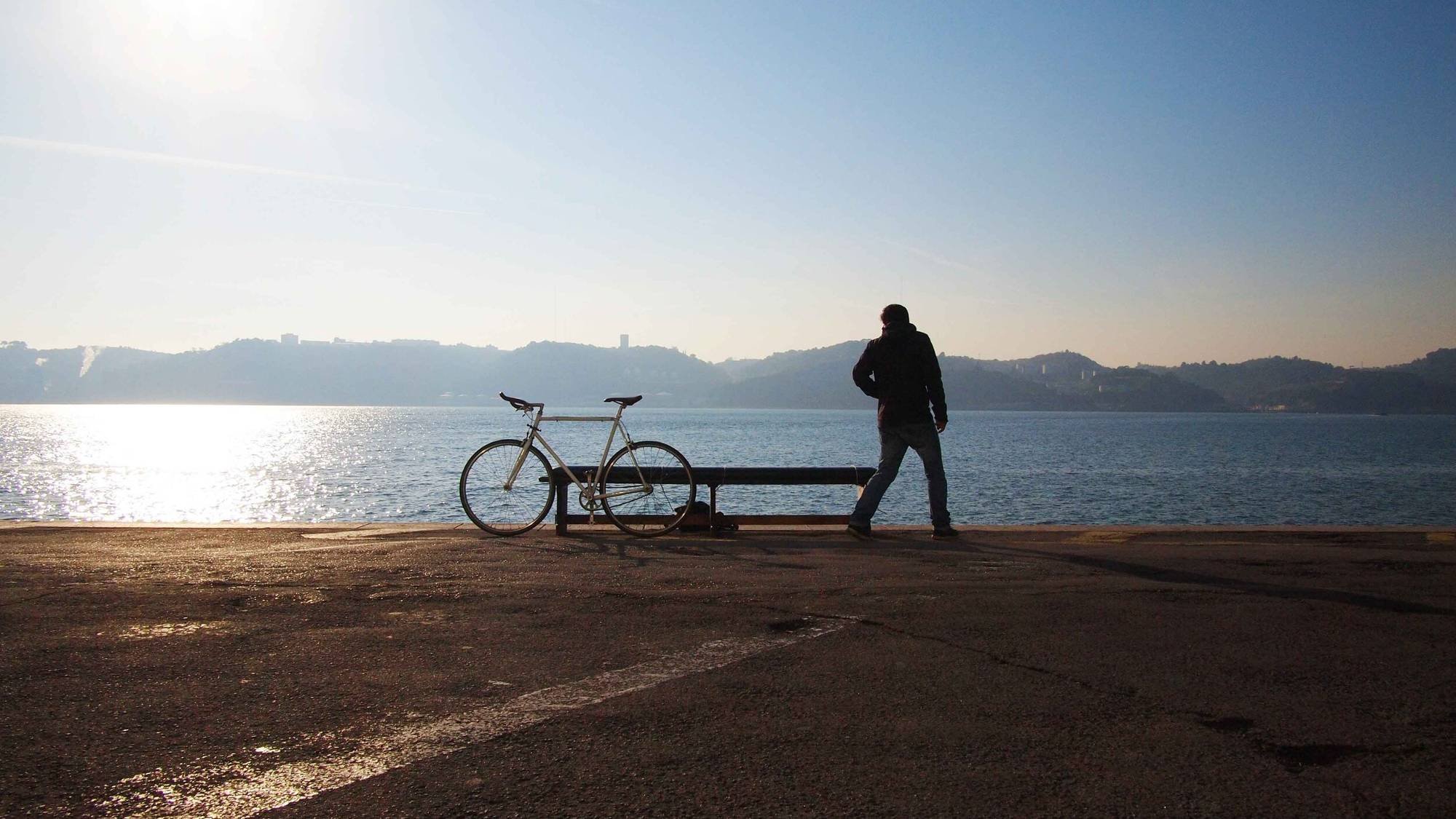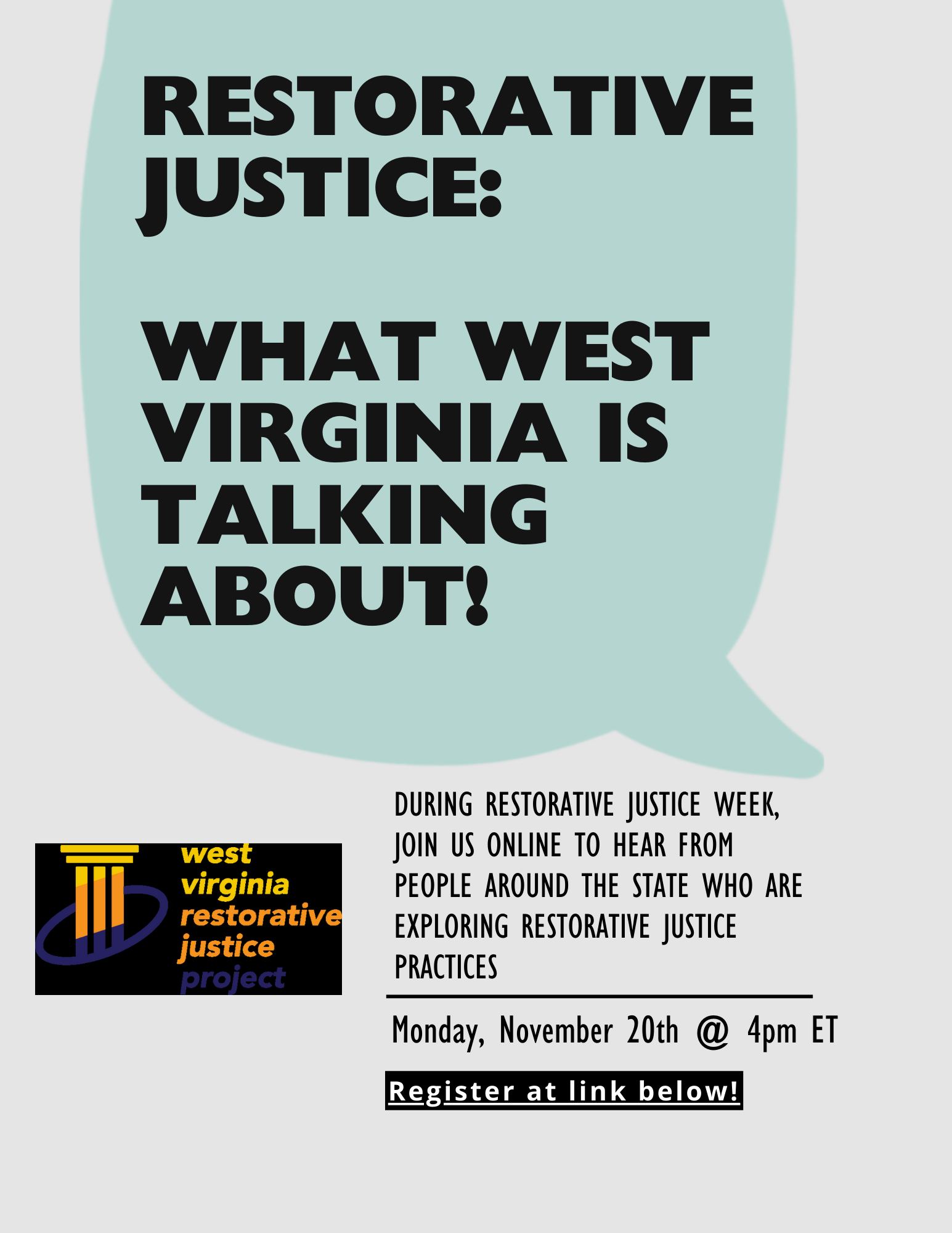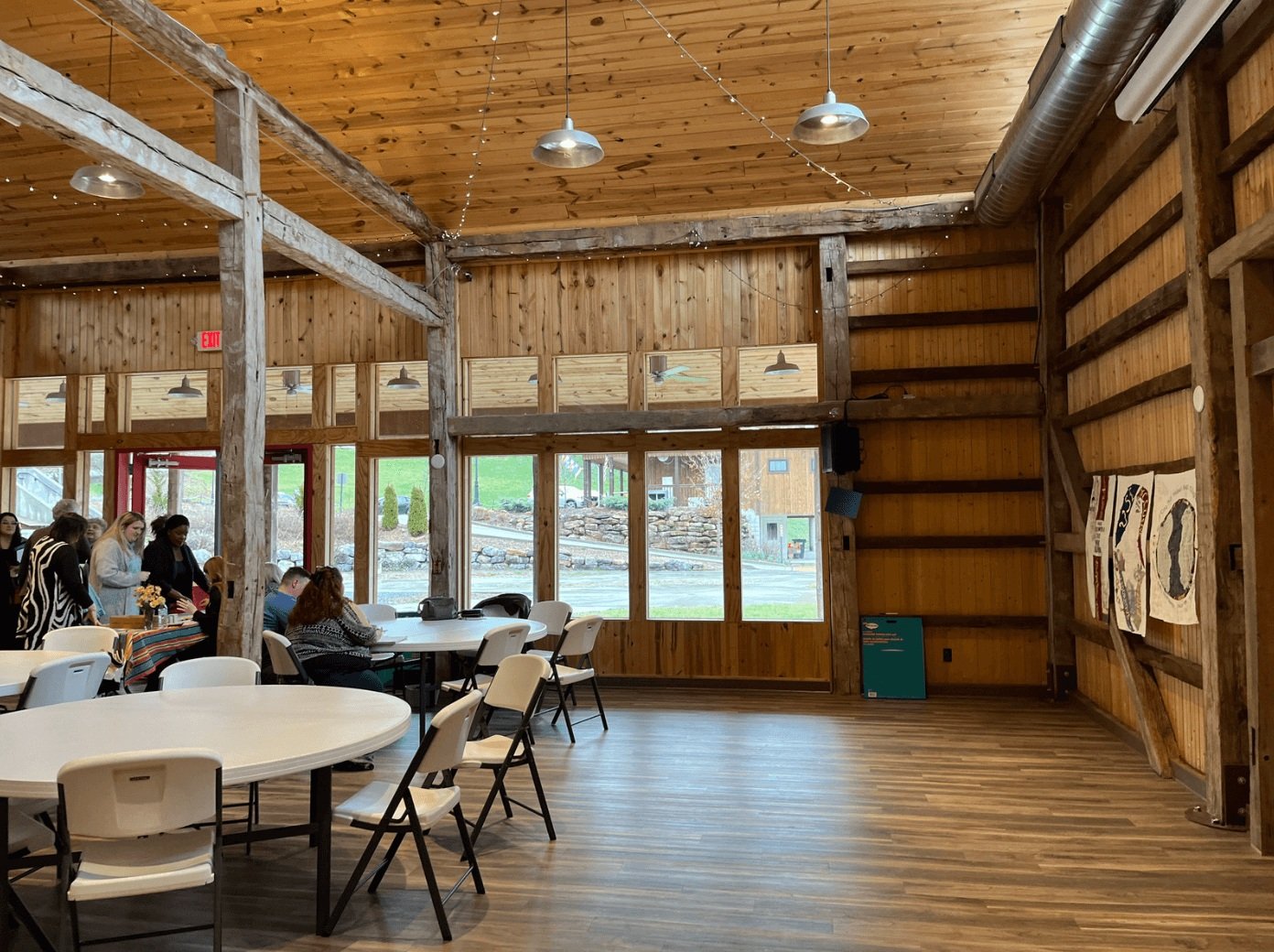
Blog Posts
Filter posts by topic:
Select a topic:
- ADR
- About Me
- Automobile Accident
- Child Inclusive Mediation
- Child Support
- Child custody
- Children
- Civil Case
- Collaborative Law
- Contractor
- Crime Victim
- Divorce
- Education Mediation
- Elder Law Mediation
- Estate Settlement Mediation
- Family Mediation
- Filing for Divorce
- Free Speech
- Health Care Mediation
- Ice and Snow
- Injuries
- Insurance
- Lawyer Wellness
- Mediation
- Name Change
- Negligence or Personal Injury Mediation
- Negotiation
- Parenting Plans
- Personal injuries
- Prison
- Real Estate and Housing Mediation
- Restorative Justice
- School
- Settlement
- Slip and fall
- Small Business Mediation
- Victim Offender Dialog
- West Virginia State Bar
- Wills and Estates
- Workplace Mediation
Search posts:
More About Restorative Justice in West Virginia!
Skills such as circle keeping and victim offender conference facilitation will be included in the West Virginia Restorative Justice Skill Building Institute in June, 2025.
Restorative Justice Creates Additional Options for Juvenile Offenders
Plead or go to trial? You may have more options. Lawyers representing youth charged with crimes may learn more about restorative justice, restorative practices and mediation by attending an upcoming virtual workshop, part of West Virginia Public Defender’s 2022 boot camp.
First Re-Entry Circle Scheduled in West Virginia
Restorative Justice is a way of looking at wrong doing through a new lens. Rather than focusing on rules and sanctions, turning to wrongdoing and healing. One of the most familiar processes associated with restorative justice is a facilitated conference between an offender who has accepted responsibility for wrongdoing and a victim who wants to participate in such a process. Another process associated with restorative justice is the talking circle where the participants in a process sit in a circle and discuss ideas suggested by the facilitator, or the keeper of the circle. This process allows for all participants to have the opportunity to participate in the discussion equally. Talking circles also maximize opportunities for listening.
Restorative Justice--It is just Common Sense!
The Joint Alternative Dispute Resolution Committee, comprising members of The Virginia Bar Association and Virginia State Bar published their quarterly newsletter this week and have included my short article on restorative justice. The article describes one case when I witnessed an offender apologize, sparking my interest in what was then referred to as Victim Offender Reconciliation Program (VORP). It was a pleasure it is for me to share this experience and my own education on the topic with the extended alternative dispute resolution professionals in the Commonwealth.
Settlement Conferences, Narrative Mediation & Med-Arb
I have been on the road a lot this month! I really enjoyed a workshop with the Virginia Mediation Network in late September on The Alternatives in Alternative Dispute Resolution. In early October I had the pleasure of participating in a symposium on Restorative Justice at the University of Richmond. But today, I’m returning to my series on the options in Alternative Dispute Resolution. Today, I am going to address a few options, in more general terms. Some are early in development, and I have not fully described them. Others involve processes that many practitioners do not include under the ADR Umbrella.
Restorative Justice as an Alternative Process
Today, we continue in our review of the alternatives within ADR and will look at restorative justice or restorative practices. My law and mediation practice is based in the principles of restorative justice. Today’s post looks more at a few of the processes often associated with restorative justice that are sometimes used instead of conventional litigation or court processes.
My Top 5 Lessons Learned at the Restorative Practices Conference in Minneapolis
Last week, I returned from the Restorative Practices International conference in St. Paul Minnesota and am frankly swamped at my office! But I want to finish out a post before I forget about the conference, so I'm going to come up with my top five lessons learned at the conference. It's no surprise to me that these tend to involve interaction between
A Restorative Justice Based Practice of Law
I’m putting the finishing touches on my breakout session for the RPI conference next week in St. Paul about restorative lawyering. What’s that? Both Dan Van Ness and Howard Zehr describe restorative justice as being a continuum, with some practices fully restorative and others not at all restorative. Most RJ program practices can be placed someplace on that continuum. I have found that in my everyday practice of law and mediation, my practices may also be placed on that continuum and I work to find the ways to make them more restorative.
Restorative Justice Training Improves Options for Educators
Restorative Justice provides options for educators in Virginia and West Virginia to improve the classroom environment. Brenda Waugh worked with experts from Harrisonburg, Virginia and Morgantown, West Virginia to create a two day workshop on restorative justice. During the workshop, participants were introduced to victim-offender conferencing and restorative justice talking circles.
Restorative Justice in Brazil (Via Harrisonburg!)
I recently traveled to Harrisonburg for the Zehr Institute of Restorative Justice, part of Eastern Mennonite University to participate in a workshop with Howard Zehr and Lorraine Stutzman Amstutz. The Institute hosted a group of judges, social workers, and attorneys from Brazil who are working to bring restorative justice into their schools and judicial systems. During their time at EMU, they had the opportunity to visit the Harrisonburg City Schools and the Harrisonburg Police Department and Prince George’s County where they could see RJ in action.
Restorative Justice in West Virginia
Tomorrow I will be joining several colleagues as we travel to Calhoun County, West Virginia for two days to meet with community leaders, education professionals, and law enforcement to discuss the potential applications for restorative justice in the community.
Free Webinar about Restorative Justice and Lawyering
On December 7, 2016, I’ll be joining Howard Zehr for a webinar on Restorative Lawyering. Restorative Lawyering is a model of practicing law that I have been developing along with colleagues such as Marshall Yoder and Susan Marcus. Restorative lawyering adopts the guiding principles and values of restorative justice. In doing so, we look at each situation, problem, or conflict and often start by asking, “Has there been harm that needs to be addressed?” and “What can be done to make right the wrongs?” These fundamental questions, central to restorative justice, change the focus from what statute or rule has been violated to what can be done to make things better.
Restorative Justice for Victims of Crime
This weekend I will be joining lawyers from all over the United States in Harrisonburg, Virginia to participate in a symposium, “Restorative Justice’s Role in the Expanding Concepts and Structures of the Practice of Law in the United States.” Sponsored by the Campbell University College of Law and the Zehr Institute for Restorative Justice, we will be addressing topics such as “A Trauma-Informed Legal Practice” and “How Restorative Practices are Affecting Systemic Change.” Of course, I am most excited to hear what Professor Zehr will bring to the symposium during Friday night's session, “Restorative Justice: Continuing the Conversation.”
Appalachian Values and Drug Courts: Part II
Last week I enjoyed visiting the Appalachian Center at the University of Kentucky where I participated in a discussion about Appalachian cultural values and legal institutions. Typically when I participate in any discussion about legal institutions, issues arise pertaining to an increasing dependence in the United States on legal institutions to resolve broad categories of conflicts. This discussion was no exception. We considered issues related to resolving social problems and addiction through the criminal judicial processes.
Drug Courts in Appalachia: Part I
Last week, I had the pleasure of participating in a conversation, a “SWAP,” at the Appalachian Center at the University of Kentucky. The center, directed by anthropologist Ann Kingsolver, works to facilitate stronger connections between the UK faculty and students who are working with a focus on Appalachia. The center also works to strengthen relationships between those of us doing work in the Appalachian region and UK.
The Potential for Mediation in Criminal Cases
Mediation has not historically occurred in criminal cases or quasi-criminal cases in the United States. However, in the late 20th century, processes similar to mediation became employed in some cases. These processes resemble mediation because they are usually voluntary, inclusive, informal, and allow for a more expansive list of options to resolve the underlying problems. While mediation is almost always beneficial in civil cases, criminal cases must be evaluated on a case-by-case basis to determine if they are suitable for these processes.
Restorative Justice and Alternative Sentencing
I am on my way to Morgantown to attend a symposium focusing on Prisons in Appalachia. I will be joining a fabulous roundtable discussion on Restorative Justice and Alternative Sentencing tomorrow morning featuring Judge Michael Aloi, Jacqueline Roebuck Sacko, Jim Nolan and Valena Beety. In my portion of the session I’ll be providing a bit of an introduction to restorative justice.




















